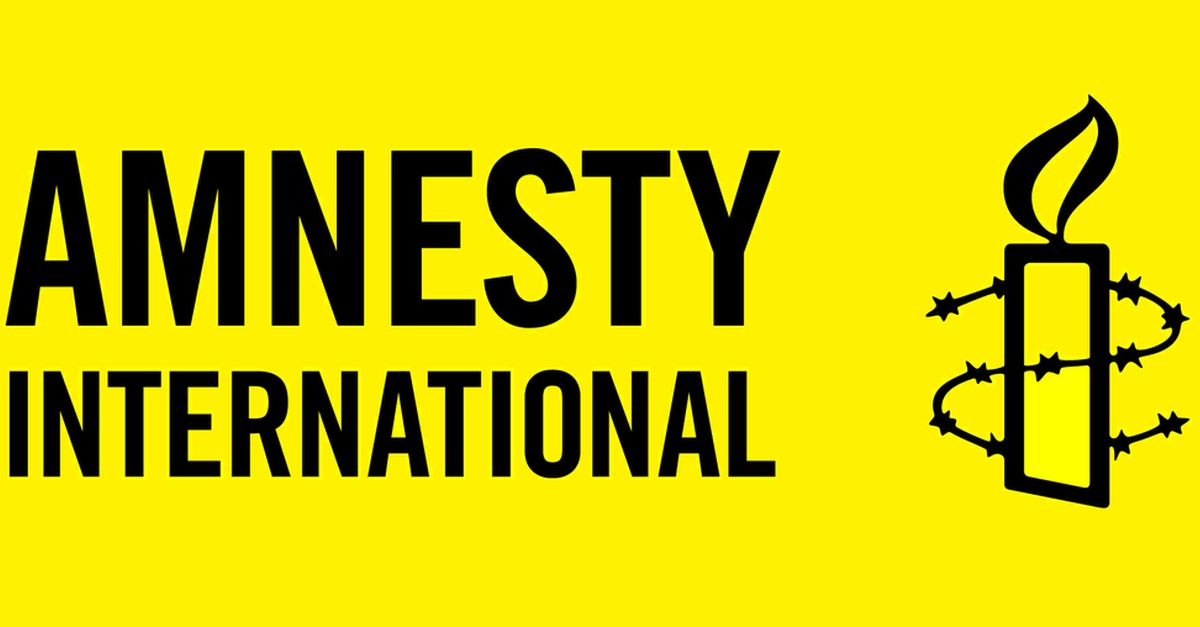
Covid-19: One year since call for vaccine tech to be shared
Published By Amnesty International UK [English], Fri, Oct 1, 2021 3:53 AM
On 2 October 2020 South Africa and India called for life-saving vaccines to be patent-free
UK, Norway, Switzerland and EU continue to block the move
At the current rate, it could take poorest countries another 50 years to vaccinate their populations
‘Greed is triumphing over human life and human rights’ - Agnès Callamard
Ahead of the one-year anniversary of South Africa and India’s call for a TRIPS waiver for Covid-19 vaccines on 2 October, Amnesty International’s Secretary General, Agnès Callamard, said:
“Since India and South Africa called for a TRIPS waiver one year ago, a staggering 3.5 million people have died from Covid-19. “How many more people must die needlessly before countries do the right thing and support the lifting of patent restrictions so vaccines, tests and treatments can be produced worldwide? “It is shameful that a handful of wealthy governments continue to monopolise vaccine supply while consistently opposing attempts to free up intellectual property rights that would enable other states to fulfil their obligations to protect their people. “The UK, Norway, Switzerland and the EU - including Germany - are still selfishly blocking the TRIPS waiver while other countries continue to waste time and prevaricate. “Pharma companies have also behaved shamefully - pushing up prices, monopolising intellectual property, blocking technology transfers and lobbying aggressively against measures that would expand global manufacturing to line their pockets. “Greed is triumphing over human life and human rights. These companies and states are seeing the beginning of their economic recovery while letting millions of people risk their lives and health because they don’t have access to a life-saving vaccine. Poorer countries are losing precious time to protect their populations. “Rarely does a solution that is so clear and so achievable present itself. The world is already miles off track from the World Health Organisation’s current target of ensuring 40% of people in lower-income countries are vaccinated by the end of this year, let alone 70% by mid-2022. “We don’t have the luxury of time. Rich states must act now. Countless lives depend on it.”
Amnesty has launched a new campaign - 100 Day Countdown: 2 billion Covid-19 vaccines now! - calling on countries and pharmaceutical companies to urgently deliver two billion vaccines to those most in need in line with the WHO target of vaccinating 40% of the population of low and lower-middle income countries by the end of this year.
Last October, India and South Africa requested a waiver that would prevent countries from granting or enforcing patents and other specific intellectual property rights related to Covid-19 products until global herd immunity had been achieved. A significant number of lower- and middle-income countries supported this proposal.
Most high-income countries - including the EU and its member states - opposed it. Of the G7 nations, only the USA has explicitly supported waiving patents for vaccines. Japan has said it will not oppose the move if it is agreed, Germany and the UK continue to vehemently oppose the plan, while Canada, Italy and France have made no clear policy statements.
Currently, 105 countries are supporting the TRIPS waiver, but a consensus of all 164 World Trade Organisation members must be reached before it is adopted.
The WTO’s Trade Related Aspects of Intellectual Property Rights (TRIPS) waiver sets out minimum standards for many forms of intellectual property that are pertinent to pharmaceutical companies - such as copyrights, trademarks, patents, undisclosed information (including trade secrets and test data) and anti-competitive practices. If agreed, the waiver would suspend the implementation, application and enforcement of certain intellectual property rights - such as patents on pharmaceutical products - and facilitate the development and manufacture of more and lower-cost Covid-19 diagnostics, treatments and vaccines.
International human rights standards and trade rules are clear that protecting intellectual property must never come at the expense of public health.
The WHO has set up a Covid-19 Technology Access Pool to allow companies to pool data and knowledge, and then license production and technology transfer to other potential producers.
To date, however, not a single pharmaceutical company has joined the data-pooling scheme.
Vaccine developers have meanwhile received more than £70bn in public funding.
Major pharmaceutical firms - including Moderna and Pfizer - are making huge profits, and nine new vaccine billionaires have been created since the beginning of the pandemic.
If current trends continue, it will take the world’s poorest countries until 2078 to vaccinate their populations. Meanwhile rich countries are likely to complete vaccinating their populations within months.
Press release distributed by Media Pigeon on behalf of Amnesty International UK, on Oct 1, 2021. For more information subscribe and follow